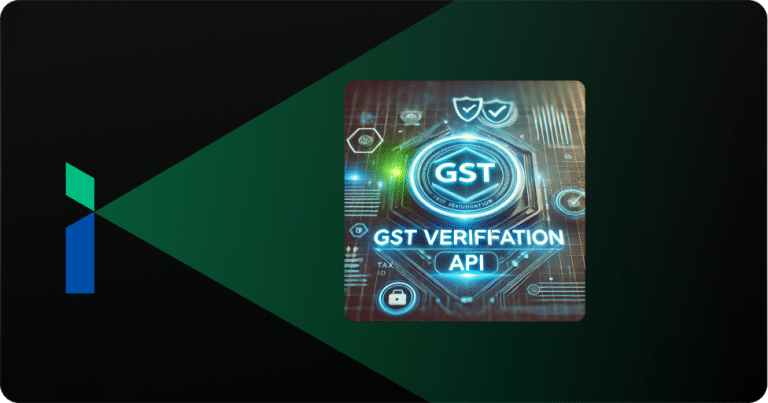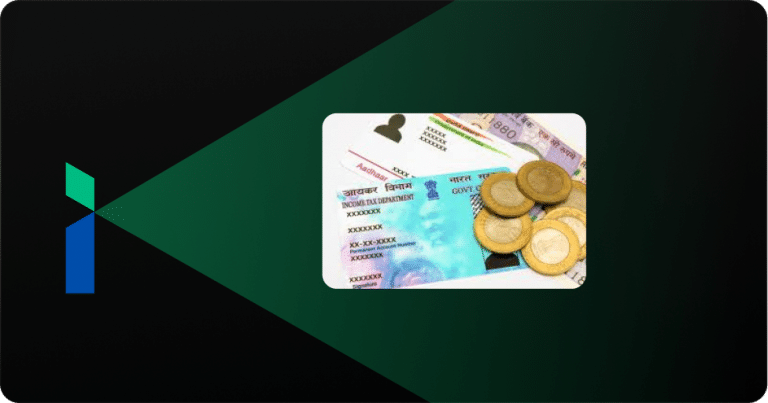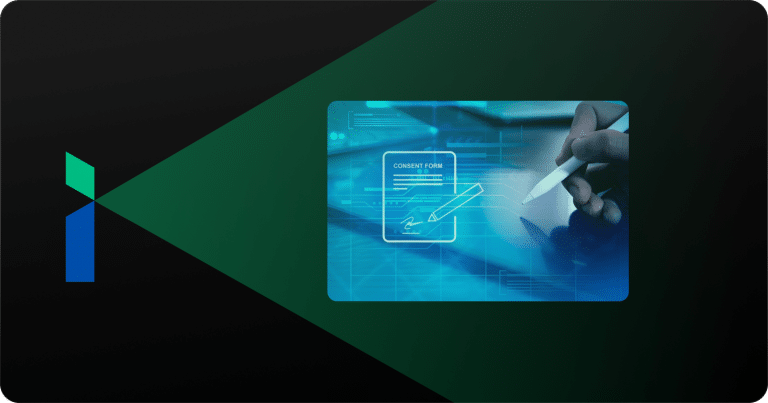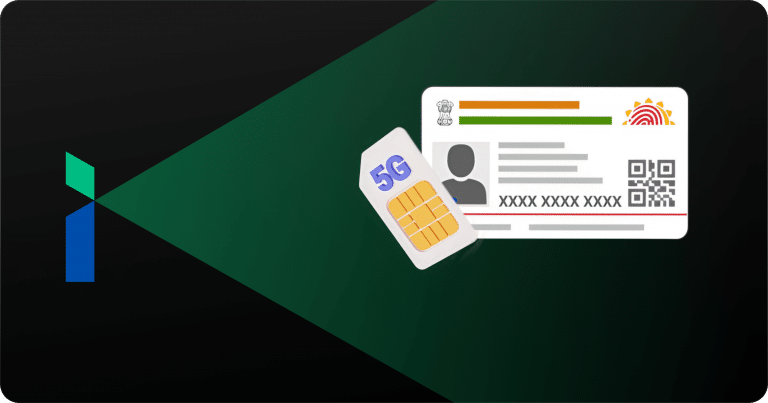RBI KYC Mandates for Banks and Financial Institutions
What is Know Your Customer (KYC)?
KYC or Know your customer is an elaborate, detailed process by which banks gather/collect information about the identity and address of the customers.
The objective of KYC verification guidelines is to deter unlawful elements from using products of the bank for money laundering and terrorism financing. It also enables banks to prevent fraud and identity theft.
Why is it important to comply with RBI’s KYC Verification guidelines?
When banks and financial institutions fail to comply with the RBI mandated KYC norms it can lead to uninhibited increase in financial crimes and undermines India’s reputation in the international arena.
The vital point to note is that, according to CNBC, India has the second-largest unbanked population, a massive millennial base and more than 140 million middle-class consumers. Know your customer norms are implemented with the dual objective of preventing money-laundering, fraud, theft, and other unlawful activities and making the onboarding process seamless, simple, and fraud-free to encourage the elusive unbanked population and new to credit(NTC) customers to participate in the new-age digital banking system.
In this blog, we will guide you through the KYC compliance guidelines/ mandates issued by the Reserve Bank of India for products offered by the banks. Let’s read on!
Types of KYC Verifications
To begin with, let us discuss the most broadly known types of KYC verifications:
In-Person Verification or Paper-based KYC
This requires the customer to be physically present with the bank officer or agent while the verification procedure is initiated. The customers are required to attach physical, self-attested copies of documents and produce the original documents for spot verification. This process is highly tedious, time consuming and prone to human error.
Aadhaar-based eKYC
As on 21st June 2021, the total number of Aadhaar card holders above the age of 18 has reached a mammoth 129.48 crore, covering 99% of the population, as per UIDAI data.
There are two possible ways by which an identity can be verified through Aadhaar,
- OTP-based verification
- Biometric based verification
OTP-based verification
Financial institutions can verify the user’s identity by triggering and activating an OTP to the Aadhaar card’s linked mobile number, which the user must enter to extract the Aadhaar card.
Biometric-based verification
This method needs UIDAI sanction scanners to verify the user’s identity based on Biometrics data such as FP, Face, Iris, etc.
Aadhaar Paperless Offline eKYC
Aadhaar XML or Aadhaar Paperless Offline eKYC is a digitally signed machine-readable XML document that is encrypted, safe, secure, and shareable to establish and authenticate the identity of the cardholder entirely offline that can be stored in the laptop or the phone once extracted from the UIDAI website.
Video KYC
In Jan 2020, the RBI amended the KYC norms allowing banks and financial institutions to onboard customers remotely using a Video-based Customer Identification Process.
Video KYC is an online, digitized process of face-to-face identity verification where the customers are required to furnish their KYC documents during the video call assisted by a KYC agent.
CKYC
Central KYC is a centralized archive of KYC documents of customers availing various financial services in the multiverse of the financial sector. When a customer buys any financial product from any of the banks or financial institutions regulated by governing institutions: RBI, SEBI, IRDAI, or PFRDA, these banks or financial institutions will register his/her KYC data with the Central Registry of Securitization and Asset Reconstruction and security interest of India or simply CERSAI.
You need to provide officially valid documents. Upon successful registration, you would be allotted a specific and unique 14-digit number known as KYC Identifier Number (KIN). This registration is mandatory for banks and financial institutions for all the accounts created on or after January 2017 and for other regulated entities like mutual fund houses, insurance, etc., for all accounts created on or after April 2017. However, existing customers before the given dates are exempted from this requirement unless it requires changing a few details in the KYC records.
The customer is required to quote the KIN number instead of submitting documents for every subsequent financial transaction. This allows more extensive market participation in the financial highway as it is highly convenient for the customers to merely quote the KIN number instead of submitting documents every time he/she embarks on a new financial relationship with an intermediary or a regulated entity.
Based on the experience with our customers the success with the hit-rates on CKYC has been around 30-50%.
Now that you have a fair understanding of various types of KYC verification methods, let’s understand the varied KYC guidelines for different financial transactions as mandated by the RBI.
KYC Compliance in India for opening a bank account
As per RBI’s KYC guidelines, banks are required to collect the following documents from the customers:
Proof of Identity
- Recent Photograph
- Officially Valid Documents as proof of identity and proof of address
- Voter ID card
- PAN card
- Passport
- Driving License
- NREGA job card
- Letter issued by National Population Register consisting details of name, address, etc
*Now bank accounts can also be opened through Aadhar based eKYC, Aadhaar XML, or Digital KYC.
Proof of address:
- Utility bills of previous two months
- State or central government-issued address copy
- Physical copies of bank account statement with banker’s signature verification
- Ration card
- Receipt of land or municipal tax
- Pension payment orders issued monthly
KYC compliance for Lending
As per RBI, the bank has to collect documents from the list of the Officially Valid Documents mentioned above as proof of identity and address for all kinds of loans. You are required to provide further documents as a salaried or self-employed individual depending on the type of loan.
Let us drill down further on KYC verification requirements for various types of lending products offered by the banks.
KYC compliance for personal loan
For Salaried, the additional documents are as follows:
- Proof of Identity and Address
- Last three months bank account statements (where salary/income is credited)
- Latest salary slip/current dated salary certificate with the latest Form 16
For Self-employed, the additional documents are as follows:
- Last six months bank statement.
- Audited Financial Statements of the previous two years
- Proof of continuation of business
- Proof of office address
KYC compliance for loan against property
For Salaried, the additional documents are as follows:
- Latest Bank Statement/Passbook(where salary/income is credited for the past six months)
- Last six months salary slips with all deductions and previous two years Form 16
- Copies of all property documents
For Self-employed, the additional documents required are as follows:
- Last six months bank statement.
- Audited Financial Statements of the previous two years
- Copies of all property documents
KYC Compliance for commercial vehicle loan
- Officially Valid documents acting as age proof, identification proof, and proof of residence
- Documents required as proof of income
- Duly filled application form issued by the bank or financial institution
- Recent photograph
- Existing loans’ details and current repayment track record
- Work in hand/Contract copies
- Signature verification proof
- Existing vehicle ownership proof
- Pro forma invoice
Post-sanction/Pre-disbursement documentation:
- Loan Agreement signed along with RTO set
- Post Dated Cheques (PDCs)/ECS Form/Standing Instruction Request
- Margin money receipt
- Insurance cover note
KYC compliance for opening a security market account
KYC norms were laid out in 2002 by the RBI and have been interpreted and adopted by securities market regulator in India-SEBI for all trading-related activities, such as opening a Demat account, opening a trading account, or investing in mutual funds.
The entire idea is to oust corrupt practices like money laundering, entities acting as fronts for illegitimate and illicit activities, trading in cash without any audit trails, extortion, and financing anti-national activities like terrorism.
KYC compliance for opening a Demat account is as follows:
- Duly filled KYC form issued by the bank.
- An officially valid document (OVD) as proof of identity, apart from a PAN card, which is mandatory, such as passport, Aadhaar card, driving license, Voter ID, etc.
- Document required as proof of residential address which contains the current address in the exact, specific format such as utility bills, service bills with linked documents or other documents such as bank statement, company’s letter, etc.
- A copy of a cancelled cheque with the account holder’s name clearly imprinted or emblazoned onto the cheque leaf. You can also provide the bank passbook or account statement, which will act as bank account proofs, however not older than three months from the date of receipt of documents.
- Latest salary slips or Income Tax Return(mandatory for currencies and derivatives segment)
The photocopies of these pertinent documents must be submitted with the bank at the time of KYC; however, it may be required to furnish the original documents for spot verification.
Aadhaar-based eKYC for Opening Demat Account
You can also expedite the process of opening a Demat account through Aadhaar based eKYC as discussed in types of verification. However, the eKYC is valid only for small transactions; if you want to make larger purchases, there is a need for In-Person Verification before your KYC account is activated for larger value transactions.
Now let’s understand the typical steps involved in KYC for onboarding verification and how Perfios can help you.
Steps to complete Online KYC:
- The first step in the KYC process is to ascertain all the comprehensive and elaborate details of the customer.
- The customer is required to enter all the required personal details at the time of account registration.
- Post that they are required to provide the supporting documents needed to verify and authenticate the details provided and conclude that the customer is exactly who he/she claims to be.
This procedure is carried out as a deterrent to identity theft. However, this process can be utterly tedious, time-consuming, and monotonous and is prone to human error, which may cause hindrances in the verification and authentication processes.
We have devised a solution that automates and streamlines many of the tedious manual processes and provides a rich, seamless user onboarding experience,
TotalKYC by Perfios
Reduce onboarding costs by up to 80% with our industry agnostic solution ‘TotalKYC’
TotalKYC is a comprehensive AI-powered digital onboarding and risk assessment platform enriched with 100+ APIs for 360-degree onboarding verification, employment verification, user authentication, profile matching, and contactability check, which enables risk mitigating, seamless customer onboardings and ensures regulatory compliance to propel the growth of your business.
It stitches together information from 850+ public sources and auto-fills details and provides additional information or enriching knowledge from a minimal set of data.
The solution authenticates in real-time the details provided during KYC by comparing the personal data with the pieces available in the public domain on Government websites.
Our TotalKYC platform is powered with award winning AI infused cognitive features like Name Match, Address Match and Face Match. It also has the best-in-class Optical Character Recognition (OCR) engine that can identify and extract the relevant details from a mere image taken of the relevant document along with the photo of the borrower and authenticate the identity of the user in real-time by matching the information extracted with the information provided in the application form.
Conclusion
KYC can be a daunting task and a complicated process requiring lengthy paperwork and taking oodles of time to complete the process but our TotalKYC solution eliminates the paperwork, streamlines and simplifies the process, and severs the time required to complete the process from weeks to mere minutes.
Disclaimer: The views expressed in this blog are those of Perfios and do not reflect policies/ opinions of any entities whatsoever. The content of this blog is for educational purpose only and provides no guarantees of completeness, accuracy and usefulness of the content expressed or implied.









